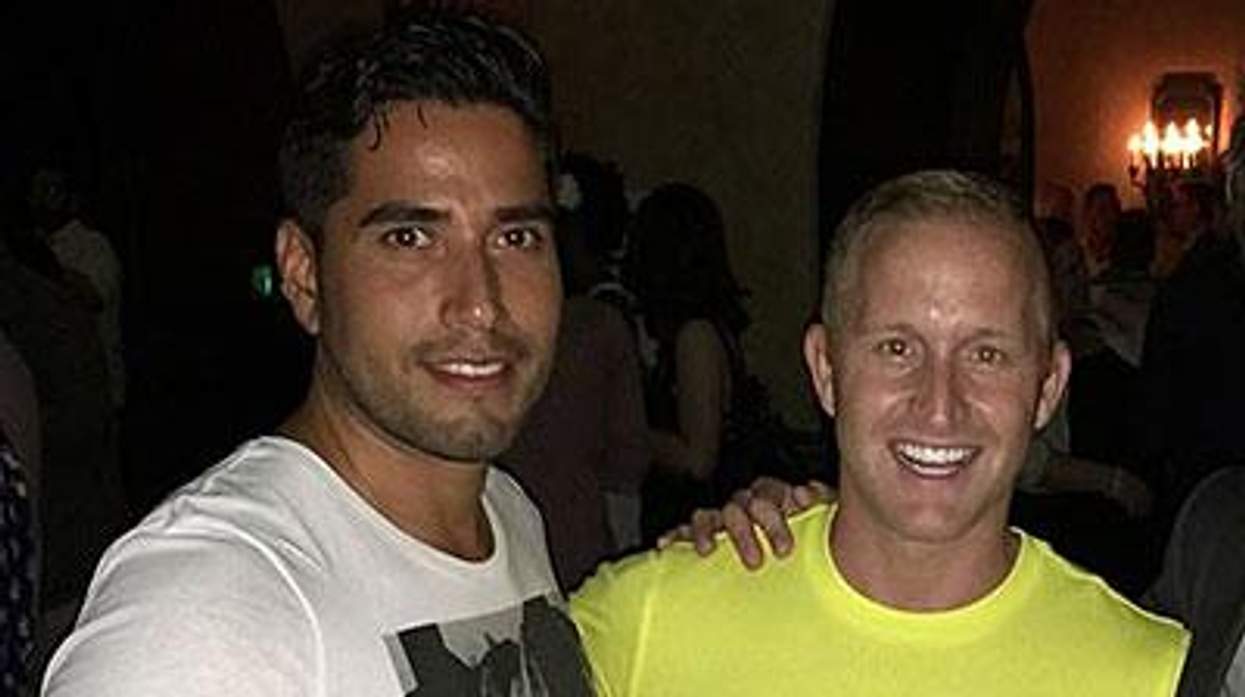Understandably, the LGBT community has created strongholds in urban environments where strength in numbers offers inhabitants a voice as well as safety. Because of this, many cities have nationally recognized gay neighborhoods where we are able to live and thrive.
But in the past decade we have noticed more and more of us moving into nontraditional neighborhoods. So we asked ourselves, what is behind this gay migration? What motivates this desire to move from a pleasant gay neighborhood to one that is rife with "straight" people and in some cases high levels of crime, and even worse, a place where no gay bars exist?
We believe there are many reasons. But one that resonates with me the most is that we no longer need to self-segregate. Instead, we can feel comfortable flourishing anywhere there are good jobs, access to education, affordable health care, and adequate transportation.
As the owners of Redline, a gay bar with plans to open in downtown Los Angeles in the fall, we took a long hard look at the DTLA crowd and determined that although gay people represent only a fraction of the total downtown population, a gay change is in the air.
Unequivocally, the answer is yes, when asked if we are nervous about opening a gay bar in DTLA. However, after looking at the trends across the nation as well as speaking with many Angelenos, we stay true to our belief that a big gay migration is on its way. We asked for social acceptance, and now it's time to mingle!
It is undeniable that acceptance of LGBT people has grown by leaps and bounds in the last decade. Whereas before, same-sex marriage was almost unheard of, it is now legal in almost two dozen states. With this momentum, it's evident that our community is becoming more comfortable living in all parts of the country. With this newfound level of comfort, new gay scenes are seamlessly integrating throughout entire cities. An example can be found in the Hell's Kitchen neighborhood of New York City. Once a breeding ground for cheap rent, underdeveloped housing, and mediocre restaurants, the increased development over the past 10 years has put Hell's Kitchen on the gay map. In less than five years, more than five gay bars and restaurants have opened their doors to a community of young and old, rich and poor, educated and uneducated gays. Although Hell's Kitchen is a short train ride (about the time it takes to travel from DTLA to West Hollywood) from the historic gay communities of Chelsea and the West Village, the tremendous growth observed there illustrates the LGBT community's desire to integrate as part of new, diverse, and even straight neighborhoods.
An additional example of my big gay migration idea is centered in the lovely city of Chicago. For years the infamous Boystown has offered us an environment in which to prosper. Whether it is in the form of gay-owned and -operated businesses, organic political and social movements, or nightlife and entertainment, Boystown has treated the LGBT community well. Yet during my last trip to the Windy City, I could not help but notice the integration of a gay scene in downtown Chicago. Located approximately 20 minutes from Boystown, the gay downtown corridor of Chicago, in our opinion, embodies social acceptance in an atmosphere shared by our predominantly straight brethren.
Provided the examples above and the many more that can be discussed, where does that leave the inhabitants of DTLA? We wonder if DTLA will quench the thirst for change. In our opinion, when it comes to large social movements within the gay community, we like to think that in five or 10 years, DTLA will be compared to destinations like Hell's Kitchen and downtown Chicago.
As gay business owners in DTLA, we have made out decision to accept social change and embrace the feeling of walking into a gay bar situated next to a straight one. Our decision was an intentional one, as our location mimics those cities where exciting restaurants, unique bars, and live entertainment already draw large LGBT crowds.
When people move to our neighborhood, we do not want them to have to think about "where the gays live," because they should not have to. Likewise, when people are making plans, they should not have to worry if there is a bar they will feel comfortable in. As members of the same gay community, we believe there is nothing wrong with predominantly gay neighborhoods, but it is important to show the world and the younger generations that the love and support of our community can be found anywhere.
ZACHARY BEUS and OLIVER ALPUCHE are opening Redline, a gay bar and lounge, in downtown Los Angeles this fall.




































































Charlie Kirk DID say stoning gay people was the 'perfect law' — and these other heinous quotes